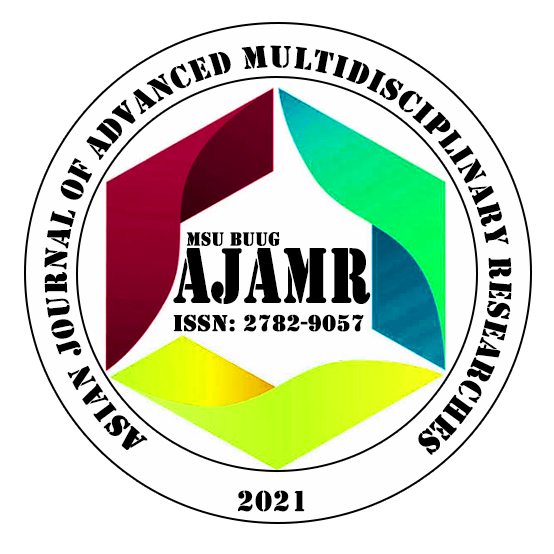

Author: Emelyn O. Derasin
Master of Arts in Education, Graduate Studies, Saint Columban College, Pagadian City, Zamboanga Del Sur, Philippines
Email: emelyn.derasin@deped.gov.ph
ABSTRACT
This study investigates the effect of the use of GeoGebra and Cooperative learning (Think-pair and Share) on the students’ performance of the
Grade 7 students of Dawa-Dawa National High School S.Y. 2019-2020 in learning geometry. This research study utilized a quasi-experimental
for nonequivalent group pretest-posttest design for which it compared the students’ performance in terms of the MPS for two trial runs. Both
the experimental group 1 (with 30 students) and the second experimental group 2 (with 30 students) were taught with the same lessons in
geometry. Besides, the experimental group 2 was taught using the cooperative learning strategy (Think-Pair and Share) while the experimental
group 1 was taught with the use of GeoGebra as a learning strategy. During the posttest result of the first and second trial run, the level of
students’ performance in the experimental group 1 consistently revealed to be moving towards mastery with an MPS of 75% and 73%
respectively, while the experimental group 2 falls behind with an MPS of 56% in the two trial runs. Using One-way Analysis of Covariance
(ANCOVA), the study revealed that there is a significant difference between the students’ performance in the two experimental groups in both
the first trial run and the second trial run. The results support the claim that students in the experimental group 1 performed better than in the
experimental group 2 and that the use of Geogebra as a learning strategy improved students’ performance in geometry.
Keywords: geogebra, geometry, students’ performance, cooperative learning